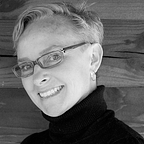Salon №1: Behavioural Science (Whose science is it anyway?)
(Mad Implementer “origin story” is here, slides from event are here).
On May 18th, 2023 we had an online exchange with 30+ social change implementers on the topic: “Behavioural Science: Whose science is it anyway?”
We started with a brief overview of key points from a recent publication: “A Manifesto for Applying Behavioral Science,” (The Behavioural Insights Team (bi.team))
Our colleague Sarah Osman gave a summary of three key points from the Manifesto, focusing on 1) Behavioural Science as a lens (rather than a rigid and heavy straight-jacket); 2) The need to go beyond randomized controlled trials (RCTs), especially in complex settings; and 3) the need to increase diversity by increasing collaboration between the Global North and the Global South.
We sought the wisdom and experience of the crowd by launching a few questions to open up discussion:
- Question 1: Should we pluralize the term, referring to “sciences” rather than Behavioural Science? Participant: “Behavioural Science was essentially a preferred rebrand when everyone started mislabelling us as behavioural economists. But it grew into being an inclusive term for all social scientists working together.
- Question 2: Is the terminology getting in the way? Participants noted that the range of words used to describe the approach can be a challenge. In French the terminology also seems quite clunky (e.g., Sciences comportementales appliquées). It was suggested that Behavioural Science may need a re-brand (or a de-brand?). This key point was made: “We have to ensure that these terminologies don’t ostracize or intimidate participation from those we want to engage with.”
- Question 3: What makes Behavioural Science different than some of the approaches we have been using for years, or some newer approaches, like service design and Human Centered Design? Participants (and there were many user experience designers, HCD experts and social marketers in the Salon): The rigor of Behavioural Science measurement methods are a key selling point for the approach. Participants agreed with the point from the Manifesto about the need to go beyond Randomized Controlled Trials. This comment gave us plenty to think about. As one participant put it:
“The measurement aspect of Behavioural Science is quite attractive… but it is often not “pick-up-able” at local levels, and thus we (practitioners) need to turn to external help, and don’t always have the financial resources to do so.”
- Another participant, who works in both Behavioural Science and Human Centered Design, shared this: One of the biggest differences I see between Behavioral Insights (BI) and HCD is that BI is evidence-based whereas HCD is a creative-solving approach, where we deliberately try to NOT be scientific. So, when we talk about the overlap, it sounds obvious at first, but the deeper we dig, I sometimes see them more contradictory than compatible.”
After a rich set or responses and reflections on the questions above, a final point was raised in relation to the final point in the Manifesto’s (“no view from nowhere”) on the need for behavioral scientists to acknowledge their own subjectivity
“No objective observation deck outside society exists; the place from which we see behaviors and construct issues matters. Assuming otherwise can create harm…” (A Manifesto for Applying Behavioural Science, p. 91)
Conversation then turned to the “whose science is it anyway?” aspect of our initial invitation, which refers to the undeniable fact that behavioural science is still largely coming from “WEIRD” geographies (Western, Educated, Industrialized, Rich and Democratic). As one participant observed:
“We’re still having a lot of challenges in terms of racial and gender diversity within those who call themselves behavioral scientists. And that issue really needs to be addressed…we’re looking at things like improving relationships or professional networks between the Global North and the Global South, and increasing diversity in PhD programs, for instance, to reduce that racial gap and increase access to research funding.”
As our exchange continued we began seeing a rich set of resources being shared in the chat, many of them related to Behavioural Science in the global south. (Deck from the event is here, see slide 25 for articles shared).
We concluded our lively Salon with an agreement to re-convene in a few months, with suggestions for a new topic of discussion being captured in this online form. So far, a few votes have come in for 1) innovation; 2) social scientists from the global South; and 3) the perceived value of Human Centered Design (HCD): Is it old wine in a new bottle? (Re-packaged Action Research? — Or something new and generative?) We welcome your votes and your suggestions for other topics of potential interest. Tentative time frame for the next Salon: Mid or late September, 2023. Stay tuned!
Salon №1 was co-hosted by Mad Implementers: Sarah Osman, Antje Becker-Benton, and Karen Greiner. We lowered our institutional flags and affiliations to come together as individuals and colleagues interested in learning and frank discussion. We welcome you to join us for future discussions — you needn’t be totally mad (mad in love with an idea, mad-crazy, mad-frustrated), you can just show up and speak your mind.
